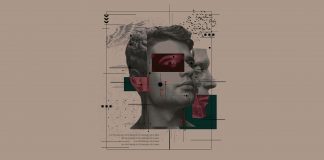Enchanting words | When deductive thinking becomes the logic of the masses
It is crucial to realise that while words can be seductive and magnetic, they can also put us in great danger if we let ourselves be carried away by their charms, driven by emotional impulses without reason.
The anatomy of belief: Part 2 | When meaning turns into an industry
Every religious movement and "camp" is built around a desirable ideal. However, when this core value becomes an end in itself and love—the hallmark of the Christian faith—is pushed into the background, tensions turn into open conflicts.
Accurate statistics and faulty interpreters
Even the most rigorously researched statistics are not immune from misinterpretation, and they can often be used in a way that obscures the truth.
Slippery slopes and anxious feet
The fact that we are able to anticipate most of the consequences of our actions is undoubtedly a blessing. However, we can also allow fear or over-cautiousness to make us anticipate events that are not likely to follow. This edges us toward a common error of judgement: the slippery slope.
Equivocation: Playing hide-and-seek in communication
When what someone says can be interpreted in multiple ways, we are in danger of coming to an understanding which is different to their intended message.
In the world of “what if” | Why we are drawn to counterfactual thinking
The ability to imagine alternatives to events that have already occurred distinguishes humans from other creatures and machines—artificial intelligence has not yet succeeded in creating a device that can devise counterfactual scenarios. The fact that we can travel in an imaginary time and rewrite our actions and their outcomes can prove to be an advantage or can lead to dysfunctional emotional and cognitive...
How to study the Bible properly
Do your best to present yourself to God as one approved, […] who correctly handles the word of truth. (2 Timothy 2:15)
I think critically, therefore I exist
We live surrounded by words—spoken with confidence, written with authority, and shared at astonishing speed. Yet behind many of them lie confusion, prejudice, and unexamined assumptions. From everyday conversations to public decisions, gaps in reasoning and expression reveal something deeper than mere slips of the tongue: they expose deficiencies in education. In such a climate, critical thinking is no luxury; it is a...
How to critically evaluate a text
Almost a century ago, writer Virginia Woolf noticed people’s tendency to approach books “with clouded and divided minds, asking fiction to be true, poetry to be false, biographies to be flattering and history to chime with prejudices.”
The delicate burden of truth, or how to catch butterflies in a minefield
Even if we have not been to Eden, the longing for innocence draws us back to a time when we had not yet tasted the forbidden fruit.
The questionable cause fallacy: Correlation does not equal causation
The questionable cause fallacy, described by the Latin phrase cum hoc ergo propter hoc, is an error of thought which leads us to believe that one event causes another event simply because the two events occur simultaneously. This error can easily be reinforced if the simultaneity of the two events is often repeated.
Appealing to authority: an expensive logical mistake
In everyday life, whether we like it or not, we rely on the information provided by experts or specialists. However, no authority deserves blind trust. When we take someone's word for granted simply because that person is an authority, we make the logical mistake called "appeal to authority."
Thinking as self-defence
No one has ever seen a thought, not even a neurosurgeon. However, today we know more about the way we think than what we were able to visualise, yet still less than we would like to know.
How to build valid arguments
Arguments must be convincing and, in order to convince, they must be valid—the minimum requirement of persuasion.
How to cope with manipulation
Many of us probably know at least one manipulative person — or perhaps we’ve even caught ourselves falling into that category. But do we really know when this tendency to control or influence others becomes harmful? And more importantly, how can we deal with manipulative people?


























